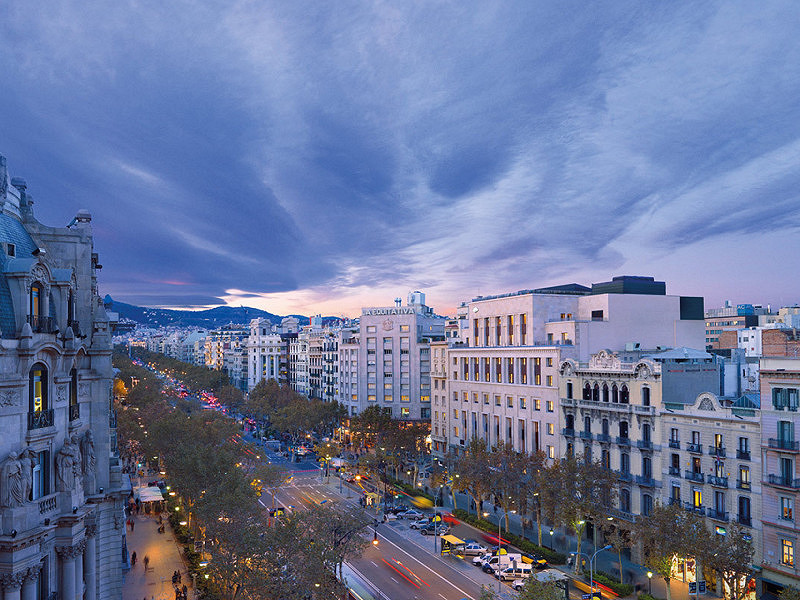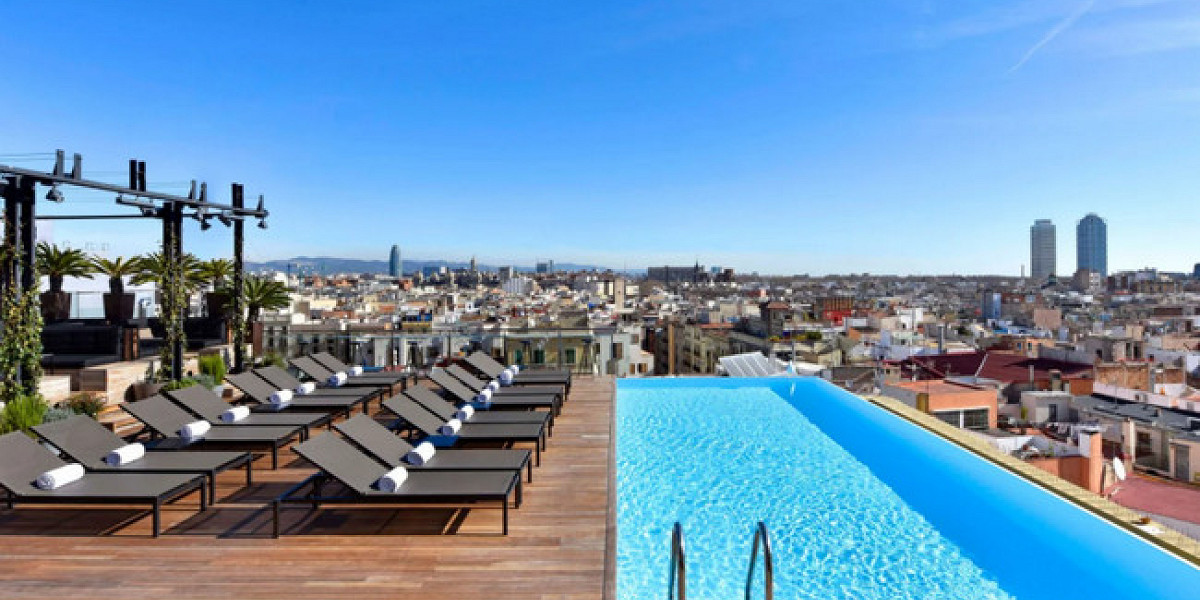
The hotel business in Spain, if properly organized, can be very profitable, since this country with an excellent climate is very popular among tourists. In this article we will look at the key aspects that need to be considered if you are planning to open a successful hotel business in Spain.
First of all, it should be noted that there are three ways to open a hotel business in Spain:
- Purchase an existing business.
- Buy a building and convert it into a hotel.
- Buy a plot of land and build a hotel from scratch.
Which option should you prefer? This decision depends solely on your capabilities, finances, aspirations and desires. Each option has its own advantages and disadvantages. The second important aspect is what type of hotel you plan to open. This is also determined by two main factors: the size of the investment and your goals. Below is a list of the main types of hotels that exist in Spain.
Management Company
The second important question to decide is whether you will manage the hotel yourself or outsource it to a professional company. The second option is much more popular, as it frees you from the need to understand the intricacies of the local market and think about how to optimally organize your business. All these tasks will be performed by the management company, and you can simply make a profit.
Of course, when choosing this option, you will have to take into account income, taking into account the payment for the services of the management company, but in the end you will win much more than you invest. This applies not only to finances, but also to your time and energy. In addition, by transferring management to a competent company with a good reputation and solid experience, you significantly reduce risks and increase the chances of receiving a stable and high income from the hotel business in Spain.
Types of hotels in Spain
Hotel
This is the most popular type of tourist accommodation among those who prefer a comfortable holiday. Hotels provide private rooms and a wide range of additional services, including entertainment, business services and much more.
Hostel
This is a more affordable option compared to a classic hotel. Hostels can offer both private and dormitory rooms, as well as family rooms with private toilets and showers. In other cases, these amenities are usually located on the floor. Hostels are aimed at unpretentious travelers and provide only the essentials, which explains their low prices.
Apart-Hotel
A hotel designed for long-term stays. Instead of rooms, they provide full-fledged apartments with a fully equipped kitchen.
Boutique Hotel
These are premium hotels with a limited number of rooms and unique designs, often themed.
Bed and Breakfast (B&B)
These places are houses adapted to accommodate guests, where sleeping rooms are provided, and the kitchen, toilet and shower are shared. They are usually called "bed and breakfast", which indicates minimal service and affordable prices. In Spain, these hotels, known as Casa Rural, are often located in small picturesque villages, near lakes, rivers or mountains, and are cozy houses in a traditional Spanish style with many bedrooms. Hosts often live in the same house with guests, creating a homely atmosphere. Such places are especially attractive to those seeking solitude in nature and a tranquil outdoor environment. When purchasing such a hotel, you are purchasing not only housing, but also a business. In addition, subsidy and financing programs for the acquisition of rural hotels are available in all regions.
Parador
These are hotels located in ancient mansions, monasteries, castles and palaces, often found in Spain and Portugal. They are especially popular among tourists who are looking for something unusual and unique.
Albergue
These hotels translate from Spanish as “shelter” or “sanctuary.” They are intended for the humble traveler and pilgrim along the Camino de Santiago. This is usually just a place to sleep in a room with several bunk beds.
What licenses and permits do you need to obtain to open a hotel business in Spain?
Requirements for permits and licenses to open a hotel in Spain vary depending on the autonomous community and sometimes even the province. Let's look at the example of Barcelona.
The first and main document is the license to operate. After obtaining a license, you must register with the tourism department or the Regional Council (Consell Comarcal). To do this, an inspection of the property will be carried out to confirm its suitability for the provision of hotel services. If the hotel provides additional services, such as restaurants, recreation areas, business services, etc., then appropriate inspections will be carried out for these premises and appropriate documents will be issued confirming their suitability for the relevant activities.
If you're planning on building a hotel from scratch, there are a few key things to consider. In the case of Barcelona, the municipality has developed a Special Urban Plan for Tourist Accommodation (PEUAT), which determines that the site for the construction of a hotel must be suitable for the purpose. Therefore, it is extremely important to obtain an “informe de compatibilidad urbanística” (urban compatibility report) before starting work, which confirms the possibility of starting construction.
After obtaining all the necessary prior permissions from the municipality, it is necessary to obtain permission from the Catalan Tourism Department or the local Regional Council (Consell Comarcal).
Here are the main documents required to open a hotel business in Spain:
- To open a hotel in Spain, you must obtain an operating license (Licencia de actividades). This process begins with the development of a technical design (proyecto técnico de licencia de actividades), which must be drawn up by a certified industrial engineer in accordance with legal requirements. A pre-approved project must be submitted to the Ayuntamiento or Entidad Ambiental de Control (EAC). After completing the construction of the hotel and preparing for its opening, a control inspection is carried out by the specified authorities. If all requirements are met, a Certificate of Conformity (Certificado de Conformidad) is issued, which must be submitted to the Municipality of Barcelona. Then you need to pay the appropriate fee, and a license to operate is issued.
- To obtain a building permit in Spain (Licencia de obras), you need to develop a technical design drawn up by a certified industrial engineer (proyecto técnico para la obtención de la licencia de obras).
- Most hotel buildings require adaptation of the electrical supply system as it is often not suitable for use in a hotel environment. To do this, it is necessary to develop an electrical supply project (proyecto eléctrico), drawn up by a certified industrial engineer in accordance with current legislation. This project allows you to legalize the system and conclude a contract with the electricity supply company.
- The gas supply system also requires a project (proyecto de gas) drawn up by a certified industrial engineer. This project is necessary to adapt the gas supply system in accordance with current legislation and the subsequent legalization of the system. After its development, it will be possible to conclude a contract with the gas supply company.
- For buildings with air conditioning equipment with a capacity of more than 70 kW, a design of the ventilation and air conditioning system is required, which must be drawn up by a certified industrial engineer.
- To open a hotel in Spain, you must obtain permission to operate from the Catalan tourism department. This permit is issued after a preliminary inspection has been carried out to ensure compliance with all current legal requirements.
What should you pay attention to when obtaining a license to open a hotel?
- The electrical supply must comply with the standards established by the Reglamento Electrotécnico de Baja Tensión (REBT). To confirm compliance with these requirements, it is necessary to develop an electrical supply project, which must be approved after appropriate verification by a technical engineer.
- Accessibility for people with disabilities must be ensured. The building must comply with the requirements established in the SUA section (Seguridad de Utilización y Accesibilidad) of the Technical Construction Code (Código Técnico de la Edificación), as well as in the Catalan Accessibility Code (Decreto 135/1995). In addition, the Catalan government has published tables (TAAC Taula d'Accessibilitat de les activitats a Catalunya) that detail the accessibility requirements for people with disabilities for various activities and indicate the applicable standards for each case.
- Ventilation. The ventilation system in the building must comply with the regulations of the Reglamento de Instalaciones Térmicas en los Edificios (RITE). In particular, in hotels, all rooms must have natural ventilation.
- Height of rooms. In hotels, ceiling heights must be at least 2.5 m, with the exception of areas such as corridors, bathrooms, storage rooms and garbage rooms, where a minimum ceiling height of 2.1 m is acceptable.
- Fire resistance of structures. The minimum requirements are specified in the section "Safety in case of fire" (SI) of the Technical Code of Construction (Código Técnico de la Edificación).
- Evacuation routes. The distance from any point of the hotel to the emergency exit should not exceed 25 m if there is one exit, and 50 m if there are two exits.
- Noise insulation. The operation of the hotel must not disturb neighbors and therefore the minimum soundproofing standards specified in the Ordenanza de Medio Ambiente de Barcelona must be met. In most cases, an acoustic study carried out by Entidad Ambiental de Control (EAC) must be attached to the application for a business license.
How to calculate the profitability of the hotel business in Spain?
In international practice, the indicators RevPar (revenue per available room) and GOPPar (gross operating profit per available room) are used to assess the profitability of the hotel business. RevPar helps evaluate the efficiency of room management, and GOPPar demonstrates the profitability of each room.
RevPar is calculated as follows:
RevPar = total revenue from room sales / total number of rooms
or
RevPar = ADR (average room rate) * occupancy factor
It should be taken into account that this indicator reflects only income from the sale of rooms and does not include income from additional services such as restaurants, spas, entertainment, business services and others.
GOPPar is calculated as the average gross operating profit for each available hotel room, taking into account income not only from the accommodation itself, but also from additional services such as spas, restaurants and other services. This indicator allows you to evaluate the overall efficiency of the hotel, including all its services, and not just guest accommodation.
Key aspects to consider when starting a hotel in Spain
- Make a financial plan. Conduct a market analysis and decide whether you can immediately raise the necessary amount or apply for a mortgage loan. In Spain, for the development of rural tourism, various support and financing programs are provided for entrepreneurs who want to open a Casa Rural. Check out these programs. It is important to plan your budget in such a way that you have about 25% of your investment left for possible additional expenses associated with acquiring and launching a business.
- Develop a financial plan for at least three to five years in advance. Before purchasing a hotel, you must carefully evaluate all financial risks to determine whether the income from the hotel is sufficient to cover all expenses, including loan payments, and ensure a profit. You may need to consult a specialist in this area.
- Decide whether to buy a ready-made hotel or refurbish the premises. If the second option is chosen, it is necessary to estimate the costs of repairing and adapting the premises to a hotel, and also take into account the need to obtain all necessary permits and licenses. This will help determine whether your business will be profitable.
- The choice of location for a hotel plays a key role in its success and profitability. It is necessary to thoroughly research the market and competitive environment before making a decision. For example, it is useful to find out whether hotels in a selected location are selling above or below their original cost. If hotels in the area are losing value, you may be able to purchase a property at a bargain price, but your expected return may be lower compared to more scenic and popular locations.
- Get advice from industry experts. This will help increase the likelihood of finding a good deal compared to searching on your own. Experts with experience in the market and familiar with all its features are aware of the latest news and are the first to know about the most advantageous offers.
- Invite a professional appraiser who specializes in hotel appraisals. It will help determine the real market value of the hotel, which you can compare with the price offered by the seller. If the appraisal is significantly higher than the listed price, request a detailed report from the appraiser, which can be used to negotiate a price reduction.
- Invite an accountant to audit the credentials of hotel guests. This will help provide important information about the hotel's cash flow, assets and financial health, which is key to assessing its financial health before purchasing.
- Consult a financial advisor who can help you develop a financial plan for your hotel, analyze the local market and current trends, suggest ways to increase profits, and help you create a quality business plan.
- To inspect the hotel, contact an engineer and architect. These specialists will help ensure that the building meets all necessary standards and is free of hidden defects. If reconstruction or repair of any premises or structures is required, they will provide the necessary information and help draw up a preliminary budget for these works.
- Contact a lawyer to verify the hotel's legal status and compliance with applicable laws. There are many legal aspects to consider when purchasing a hotel, and an experienced lawyer can help ensure that the hotel is fully compliant with the law and free of any legal issues. In addition, he will help you develop a tax strategy taking into account the specific tax legislation of the region.
2024 opens up new prospects for investment in the Spanish hotel sector
The Spanish tourism and hotel sector has been hit hard by the pandemic, but the current situation has opened up new investment opportunities in the market. Large investment funds (such as Blackstone, Azora, Hesperia and others) and private investors are showing interest in these opportunities. They are confident that in the long term, the hotel sector in Spain will recover and the business will become profitable, especially given the availability of bargain prices on the market at present.
The plans of large investment funds such as HIP, Grupo Hesperia, Colliers International Spain and others confirm that interest in the hotel sector remains at a high level. Every day, investor confidence in the recovery of the tourism segment in Spain in the medium and long term (over the next 3-4 years) increases, which stimulates further growth of this interest.
For example, Juan Garnica, head of the hotel sector at Savills Aguirre Newman, expresses confidence that by 2023-2024, the Spanish tourism sector will return to levels comparable to the period before the crisis.
David Alonso, head of research at BNP Paribas Real Estate in Spain, predicts an increase in investor activity in 2021. This growth will be driven by the need for hotel business owners to sell their assets due to financial difficulties.
Jordi Ferrera from Hesperia notes that the market mainly offers for sale hotels belonging to small family businesses facing financial difficulties, as well as large companies that intend to improve their financial performance by selling off part of their assets.
The Brainsre.news portal reports that there are currently more than 160 hotels for sale in Spain, located mainly on the coast, on the Canary and Balearic Islands, as well as in major cities - Madrid, Barcelona, Seville and Valencia.
Juan Garnica is confident that if the sanitary situation improves, a period of opportunity will open, which is called the “window of opportunity.” It is important not to miss this moment. Therefore, experts advise investors who are ready to invest available funds not to delay the decision and start investing in the near future.



